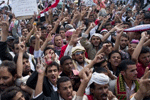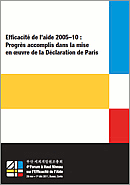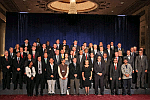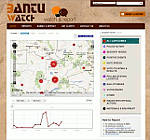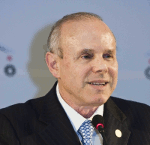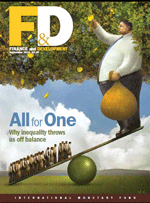Social Watch news
Published on Mon, 2011-09-26 09:10
Yemeni people are suffering from a deteriorating human rights and security situation, and the abusers should be subject to justice in order to restore stability and to allow a political dialogue, warned Ezzadin Al-Asbahi, director of the Human Rights Information and Training Center (HRITC, focal point of Social Watch) last week. Al-Asbahi took part in an interactive dialogue at the Office of the High Commissioner for Human Rights about the crisis in the Arab country. |
Published on Sat, 2011-09-24 19:48
Source: Better Aid The report “Aid Effectiveness 2005-2010: Progress in Implementing the Paris Declaration”, released on Thursday by the OECD, shows that the richest countries, which currently provide the lion’s share of development aid ($120 billion of aid annually), have made disappointing progress in making this significant sum work to address poverty. |
|
Published on Fri, 2011-09-23 12:01
Source: CARDET A project proposal for the development of a multilevel network in the Mediterranean Region for organizations and public bodies working for immigrant integration in Europe will be submitted to the Cyprus Ministry of Interior by the Center for the Advancement of Research and Development in Educational Technology (CARDET, focal point of Social Watch in that country). The objective of the network will be the sharing of knowledge, experiences and practices related to migrant integration in local societies. Through this sharing and exchange of best practices, all participants will benefit, according to CARDET, which is seeking support among other NGOs of the region. |
Published on Fri, 2011-09-23 11:32
Sources: IDN-InDepthNews, EEPA The European Union (EU) and the European Parliament censured the Eritrean President Isaias Afewerki for sending independent journalists and "thousands of Eritreans" to jail, and urged the African Union to exert pressure on the government to free prisoners. “Europe finally condemns Eritrea; but does it do anything to support the Eritreans?” asked Professor Mirjam van Reisen, founder and director of Brussels-based Europe External Policy Advisors (EEPA). |
Published on Fri, 2011-09-23 11:22
Sources: International Peace Bureau, Kvinna till Kvinna, IPS On October 29 Hanaa Edwar will receive the Sean MacBride Peace Prize in Potsdam, Germany, but she will not rest until seeing her efforts crowned in Iraq. “I have to do this for the Iraqi people. We continue to fight for peace, equality and democracy,” said Edwar, co-founder and current Secretary-General of the Al-Amal Association (focal point of Social Watch in that country), in an interview with the Swedish feminist organization Kvinna til Kvinna. |
Published on Thu, 2011-09-22 13:04
Sources: Transparency International, Financial Task Force, HumanRights.gov, Inesc
A group of government and civil society organizations from all over the planet, among them the Instituto de Estudos Socioeconômicos (Inesc, focal point of Social Watch in Brazil), launched this Wednesday in New York the Open Government Partnership (OGP), a multilateral initiative that aims to promote transparency, fight corruption, strengthen accountability and empower citizens. |
Published on Wed, 2011-09-21 11:04
Sources: BantuWatch, IPS, Global Voices, Reuters, AllAfrica The electoral campaign and the polls held on Tuesday in Zambia counted on unusual but effective observers: the citizens themselves could report irregularities via Twitter, SMS, Internet and telephone thanks to BantuWatch. That’s the name of an initiative headed by the Southern African Centre for the Constructive Resolution of Disputes (Saccord), with the technical support of the Dutch Humanist Institute for Development Cooperation (Hivos) and the Social Development Network (Sodnet, focal point of Social Watch in Kenya). |
Published on Tue, 2011-09-20 12:28
Source: Eurostep As part of the so called BRICS countries (along with China, India, Russia and South Africa), Brazil has established itself as one of today’s most important emerging economic powers. The country has not only become increasingly involved in giving aid to African countries but is also expected to provide help to the European Union’s (EU) indebted member states, as a means to overcome the current financial crisis, reported Eurostep based on news published by several media outlets. |
|
Published on Fri, 2011-09-16 11:54
Sources: ECLAC, Representatives of the civil society Representatives of the governments of Latin America and the Caribbean who convened this week in Santiago de Chile didn’t include among their recommendations to the United Nations Conference on Sustainable Development (Rio2012), to be held next year in Brazil, the concept of “green economy”. |
Published on Fri, 2011-09-16 10:20
Sources: Finance & Development Civil society organizations have been arguing in vain for years that combating inequity is not just an ideological position but a practical policy option, and not to adopt it would be fatal for the world economy and for human development. And now at last inequity is becoming a key subject for concern in international financial institutions and among the academics whose theories underpin their operations. |

